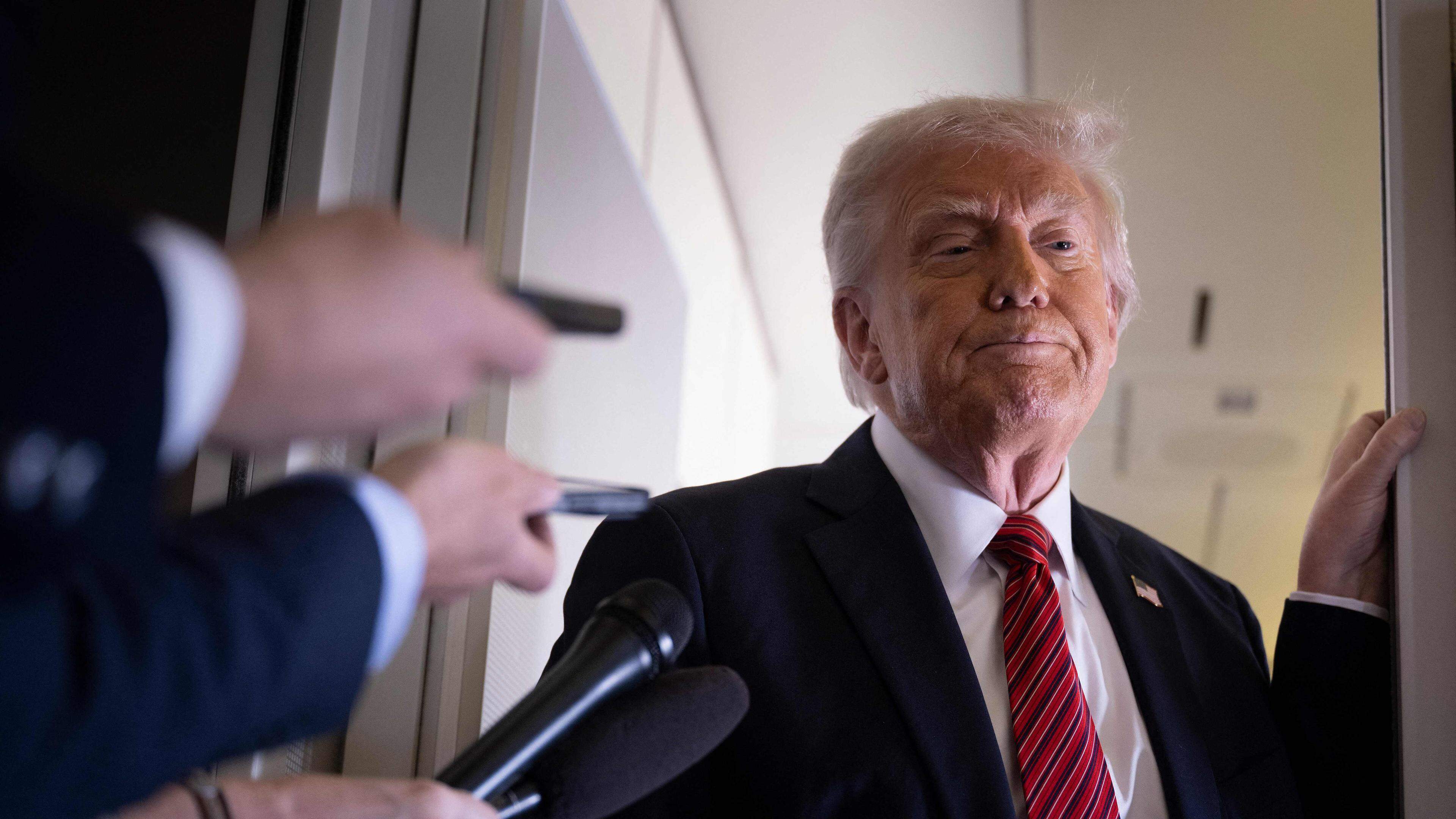Trump grants the EU in the event of threatened new tariffs

US President Donald Trump wants the introduction of the one he announced for early June new tariffs Move to imports from the EU by a month to leave more time for negotiations. The start of the additional import fees of 50 percent will be postponed to July 9, Trump said after a conversation with EU Commission President Ursula von der Leyen.
She promised him that necessary conversations would start quickly, Trump wrote on his online platform Truth Social.
Immediately before Trump’s announcement, Leyen wrote on platform X, the European Union and the United States shared one of the most important and closest trade relationships worldwide.
« Europe is ready to advance talks quickly and determined, » she continued. It takes time until 9th. The date marks the process of a delay for other tariffs announced by Trump in April. At that time he had suspended new tariffs on imports from all over the world after great turbulence on the stock and financial markets for 90 days.
This time window should be used for negotiations. At that time, the EU also announced that it was initially suspended planned counter-tariffs on US products for three months.
Trump’s surprising customs announcement before the weekend
On Friday, however, Trump surprisingly threatened the EU with punitive tariffs of 50 percent from June 1 – and was not very compromising. « I’m not looking for a deal, » said Trump in the White House. He justified the drastic step with stuck negotiations.
The DAX had sagged to the deepest stand for two weeks. European products, such as from Germany, would probably be significantly more expensive in the United States if the high punitive tariffs should actually occur.
Fear of Trump’s tariffs boosts the economy
Despite Trump’s assertions, however, it seemed unclear whether the new penalty fees would come into force on imports from the EU as announced with such a short period of time. Trump has regularly threatened with high tariffs in the past – and then completed a U -turn. Sometimes the Republican probably only uses his customs threats as a negotiating tactic.
The United States recently completed a trading pact with Great Britain to avert high tariffs. With China, the US government also negotiated a reduction in mutual tariffs.
Possible suggestions for setting up the customs dispute
In order to defuse the current trade dispute, the EU has already offered the United States an agreement for the mutual cancellation of all tariffs to industrial goods. So far, the Trump government has not responded to this.
In addition to customs deals, new agreements are an option. According to the EU Commission, the EU and Trump could, for example, conclude a new deal to expand American exports of liquefied gas (LNG). It would also be possible to import more military technology and agricultural goods in order to reduce the US trade deficit with the EU.
EU Parliament votes for less bureaucracy in imports
The EU sees Trump’s tariffs as not justified and incompatible with the rules of the World Trade Organization (WTO). She emphasizes that she will introduce decisive measures against US tariffs should the negotiations fail. This should include against tariffs.
Trump sees EU as a vehicle to harm the USA
Trump regularly accuses the Europeans to « rip off » the United States. The EU was primarily founded for the purpose of overprovating the United States in the area of trade, Trump recently complained. At Truth, he criticized the EU for « powerful trade barriers, VAT, ridiculous company penalties, non-monetary trade barriers, currency manipulations, unfair and unjustified lawsuits against American companies and much more ».
With higher tariffs on imports to the United States, Trump wants to force more balance in world trade. Whether this strategy works is at least open. The tariffs are also risky for the Republican in domestic policy because they could drive up prices.
An import customs works in a similar way to a tax: the submission must be paid to the state by the importing company – in this case by companies in the USA. It is likely that the importing companies will at least partially pass on the higher costs to consumers.








